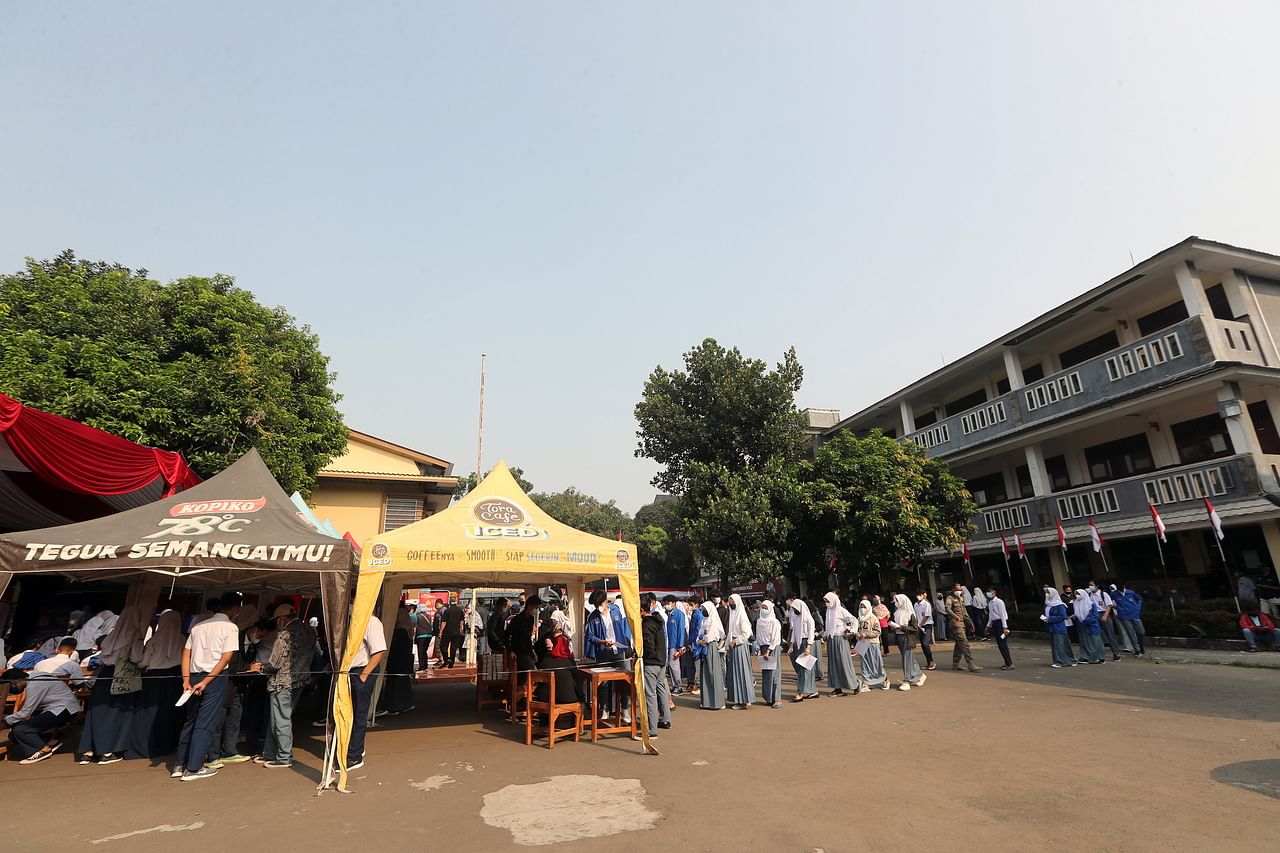JAKARTA - Scores of Indonesian provinces have been slow to administer the Covid-19 vaccines delivered to them so far, unfazed by the highly virulent Delta variant sweeping through the world's fourth-most populous country.
New data from the health ministry on Tuesday (Aug 3) showed that of the 91 million doses sent to Indonesia's 34 provinces since January, only 68.6 million - or 75 per cent - have been administered.
Highly populated provinces - such as West Java which is as populous as South Korea, and East Java - are among those moving at the slowest pace.
As at Monday, West Java, with a population of 50 million, had received 11.6 million doses of vaccines, but had only administered 9 million of them. East Java, with a population of 40 million, had received 13.2 million doses, of which 10.8 million doses had been administered, according to the health ministry data.
Only three provinces - Riau Islands, Riau and Bangka Belitung Islands - have fully administered the vaccines vials shipped to them.
Indonesia is aiming to inoculate 214 million people - or about three-quarters of the population, including those aged between 12 and 18 - by the end of 2021. So far, about 20 million have received both shots.
President Joko Widodo has said that Indonesia is doing a three-pronged approach in combating the Covid-19 wave: boosting vaccination; imposing strict health protocols; and ramping up testing and tracing.
"Firstly, we speed up vaccination especially in the regions with high mobility and economic activities… Testing and tracing would be followed by isolation and treatment," Mr Widodo said on Monday night, when he announced an extension of partial lockdown for a week through Aug 9, mainly in parts of Java and Bali.
He pledged the country would set up more centralised quarantine facilities and guaranteed the availability of medicine and oxygen supplies.
The lockdown that began on July 3 covers parts of Java and Bali, and 15 other cities and regencies in places such as Sumatra and Sulawesi.
It has led to the suspension of most activities and closure of non-essential public places, including malls, places of worship and parks.
Java and Bali are now reporting fewer than half the number of daily confirmed cases reported in mid-July.
Other regions have begun to see surging infections, but the government noted that these areas were less densely populated compared with Java and Bali, and similar control measures could be applied there. The remote location of some of these places, however, may prove challenging.
Indonesia has so far reported about 3.5 million cases and nearly 99,000 deaths from Covid-19. On Tuesday, it recorded 33,900 new cases, while another 1,598 people died.
Indonesia has secured 480 million doses of Covid-19 vaccines of various brands and about one-third have been delivered, making it the country with the largest stock available in South-east Asia.
But getting them distributed and administered to people across the country has been a daunting task that requires navigation across seas and tough terrain, as well as through a web of affiliations and bureaucracy.
Many of the local leaders - mayors, regents and provincial governors - have affiliations to different political parties, organisations and groups, and have often been uncooperative, posing a stumbling block to the vaccination drive.

There were incidents where regions declined to promptly distribute vaccines to certain areas because of different affiliations.
The health ministry has roped in the military and the police force to speed up vaccination. Queues for jabs at police stations and territorial military headquarters across the country have become a common sight.
The government has also involved a wide range of civil society groups, school alumni clubs and religious organisations, including the two largest ones - Nahdlatul Ulama and Muhammadiyah - which have tens of millions of members each.












